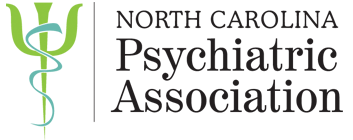- Home
- About
- Foundation
- Advocacy
- Conferences & Events
- Jobs & Classified Ads
- Contact Us
Collaborative Care Education and Resource GuideThe Collaborative Care Model (CoCM) uses a team-based, interdisciplinary approach to deliver evidence-based diagnoses, treatment, and follow-up care to an identified patient population. It is being embraced and adopted in several healthcare systems and payors across the state. Not only does it provide evidence-based care for mental illness and substance use disorders, it is documented to improve access, clinical outcomes, and patient satisfaction. This team-based care approach focuses on a new way to leverage psychiatrists and provide evidence-based management of behavioral health conditions in the primary care setting. In addition to improving access, clinical outcomes, and patient satisfaction, the Collaborative Care Model (CoCM) has also shown a return on investment (ROI) of 6:1. The CoCM’s ability to help manage costs for behavioral health conditions and complement the state’s approach to whole-person care makes it an excellent option for North Carolina. Connect to a Consulting PsychiatristThe NC Psychiatric Association is helping interested Primary Care Practices find adult, child, and adolescent psychiatrists to serve as the consulting psychiatrist. Click here to search for a psychiatric consultant. Become a Consulting PsychiatristThe NC Psychiatric Association is helping connect psychiatrists interested in working with Primary Care Practices in the CoCM. If you are a psychiatrist looking to work as a psychiatric consultant, click here to complete our matching form. What is the Collaborative Care Model (CoCM) In the CoCM, primary care practices set up a disorder-specific registry of patients within the practice who have been identified with mental illness or a co-occurring disorder who are not improving under routine primary care. The Behavioral Health Care Manager (BHCM) is employed by the primary care practice and puts in place scheduled screenings, evaluations, and follow-up calls for each patient on the registry. The BHCM also meets weekly (in person or by phone) with the consulting psychiatrist to review the charts and discuss the patients on the registry, determining whether progress is being made toward the treatment goals or if other interventions/changes in medications need to be recommended. The care manager, if a licensed mental health professional, may provide some short-term therapy in some cases. The consulting psychiatrist rarely, if ever, sees a patient but instead reviews charts, looks at progress, and makes recommendations to the PCP through the BHCM. Psychiatrists and the BHCM do not bill for these codes. Only the PCP can bill, but the bundled payments support the employment of the BHCM and the contracted hours with the psychiatrist.
What are the Benefits of CoCM?There are many benefits of the CoCM for psychiatrists, primary care practices and patients. Psychiatrists are uniquely positioned to be able to provide consultation under this model. Many psychiatrists contract out a day or two a week to agencies and clinics. The flexibility of this model allows for similar scheduling with a primary care practice. There is no insurance billing or bill collections. Psychiatrists contract their hours with the practice. Extends the reach of psychiatric oversight. Psychiatrists are limited by the number of hours in a day and the number of patients they can see in an hour. Managing a registry of 60 patients and, providing weekly chart reviews, overseeing medications and therapeutic interventions, and making clinical recommendations geometrically multiplies the number of patients who benefit from a psychiatrist's specialized training. Trains PCPs in mental health and psychiatrists in population health. As psychiatrists in the model make clinical recommendations to the PCP, the primary care physicians become more accustomed to informed clinical interventions and more confident in treating patients with psychiatric disorders in their practices. Similarly, instead of treating each patient individually, a psychiatrist benefits from the experience of “treating to target” in a population health approach. Most importantly, patients get better. In more than 80 randomized controlled clinical studies, CoCM has been shown to lead to better patient outcomes, better patient and provider satisfaction, improved functioning, and reductions in healthcare costs. In a world where 50% of patients who receive referrals for specialty mental health care never follow through, improved treatment in a primary care practice under the care of the CoCM team is a big win. CoCM Training & Educational Opportunities >>Implementing the Collaborative Care Model >>Reimbursement for Collaborative Care >>The Collaborative Care Model: The Role of the PsychiatristCoCM FAQWhat Other Groups Support CoCM?Other agencies and associations that support this endeavor include:
The NC Psychiatric Association is helping interested practices find adult, child, and adolescent psychiatrists to serve as the consulting psychiatrist. |
